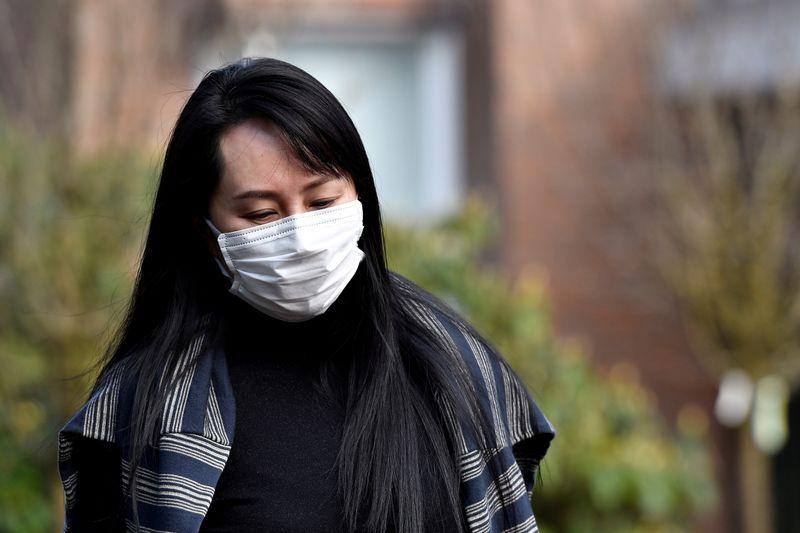ReutersMar 23, 2021 02:15:16 IST

By Sarah Berman and Moira Warburton
VANCOUVER (Reuters) – Canadian police were negligent when they failed to preserve the texts and emails of a retired officer who later refused to testify at Huawei Chief Financial Officer Meng Wanzhou’s U.S. extradition hearings, Meng’s defence argued in court on Monday.
Meng, 49, is accused by the United States of misleading HSBC about Huawei Technologies Co Ltd’s business dealings in Iran, causing the bank to break U.S. sanctions. Meng says she is innocent and is fighting her extradition from house arrest in Vancouver. If extradited, Meng will face trial for bank fraud in the United States.
The defence has argued that abuses of process, including alleged coordination between Canadian and American authorities during her detainment that resulted in the collection and sharing of identifying information about Meng’s electronic devices, should invalidate the extradition.
On Monday, Meng’s lawyer Scott Fenton said that retired Royal Canadian Mounted Police (RCMP) staff sergeant Ben Chang would have been the most important witness on the issue of whether police wrongfully shared identifying details about Meng’s electronic devices with the FBI.
Fenton further claimed that the RCMP failed to review or preserve Chang’s texts and emails after he retired in 2019. He said this led to the automatic destruction of records relevant to the case, which amounted to “unacceptable, unexplained negligence” on the part of the RCMP.
Fenton asked the British Columbia Supreme Court judge to make an “adverse inference,” meaning that the court would accept that if Chang was subjected to cross-examination, unfavourable evidence would emerge. He also urged the judge not to rely on facts submitted in a sworn statement by Chang.
Last week, Fenton and another defence lawyer, Mona Duckett, disputed the stated motives of Canadian border officials when they were questioning Meng before her arrest by police, arguing that they were carrying out a covert investigation for the FBI.
Canadian officials testified in November and December 2020 that they were following normal procedures. Lawyers for the Canadian government have called the defence team’s argument an unfounded “conspiracy,” and stated that officials on both sides of the border followed due processes, denying that any information was shared improperly.
Meng’s arrest has frayed diplomatic ties between China and Canada. Shortly after Meng’s arrest, Beijing detained two Canadians on espionage charges. The trial of Michael Spavor ended on Friday, while that of Michael Kovrig took place on Monday.
(Reporting by Sarah Berman and Moira Warburton in Vancouver; Editing by Denny Thomas, Lisa Shumaker and Sonya Hepinstall)
This story has not been edited by FP staff and is generated by auto-feed.










